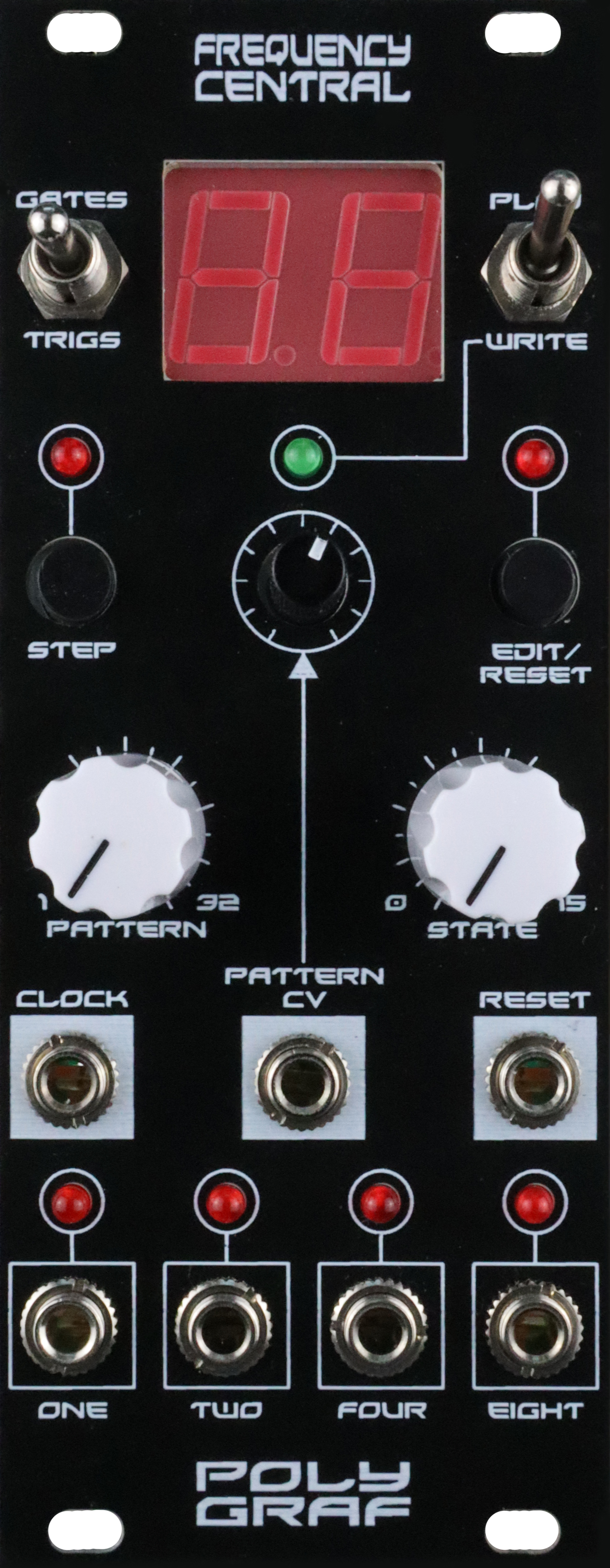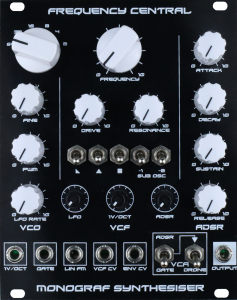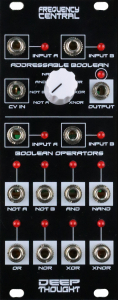Description
Polygraf is a step sequencer that features record/edit and playback functionality across 32 different patterns of up to 16 steps.
Polygraf has four binary outputs (can be High or Low), labelled One, Two, Four, and Eight. During playback, Polygraf outputs a combination of High and Low for each of those outputs. The combinations can be edited by setting Polygraf to write mode and following the necessary procedure.
Patterns: Polygraf has 30 Patterns (Patterns 1 to 30) that can be overwritten/edited, and 2 Patterns (Patterns 31
and 32) that cannot be changed. Patterns are composed of up to 16 Steps (but can be recorded to be shorter).
Steps: Polygraf has four binary outputs (can be High or Low), labelled One, Two, Four, and Eight. A Step outputs
a specific combination of High/Low for each output. During playback, clocking advances Polygraf to the next
Step (or wraps around to Step 01 if there isn’t one). Individual output configuration can be uniquely
represented as a 0 to 15 number known as the State.
State: A unique combination of On/Off for all of the outputs. There are 16 possible combinations thus 16
possible States. We number these 00 to 15. A State’s identifying number can be determined by adding the value
of the outputs that are On. E.g. if outputs One and Four are On (and Two and Eight are Low) then the number is
05 (because One + Four = 5).
Pattern chaining: When in Play mode, Polygraf’s STATE potentiometer is used to determined the pattern chaining mode. The
potentiometer acts as a four position switch. When changing between positions on the switch, Polygraf’s 7 segment
displays briefly indicate which position you are in, eg briefly showing ‘02’ to indicate the second position.


